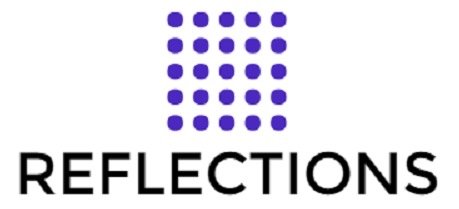Abandoning Facebook
Abandoning Facebook
Book cover - The Power of One by Frances Haugen
Data scientist Frances Haugen worked for Google, Yelp and Pinterest before beginning her employment at Facebook (now Meta) in 2019. Two years later she became a whistle-blower, collaborating with Wall Street Journal reporter Jeff Horowitz on a series of reports regarding behind-the-scenes conduct at the social media company, spending hours testifying at Congressional hearings, and appearing on 60 Minutes. She can now add the title “author” to her resume, as her first book, The Power of One, was published this year.
The Power of One is part memoir, Haugen’s life from childhood to tech manager, and partly an expose of what alarmed her about Facebook operations. She became a whistle-blower and shared over 15,000 corporate images with the Wall Street Journal after she found that FB operations were causing harm to people all around the world and had likely been the cause of armed conflicts in numerous locations. By emphasizing clicks, screen time, and revenue beyond any other concerns, FB algorithms magnified the impact of alarming “news” regardless of its accuracy, and provided a platform that did little to deter scammers or those targeting vulnerable populations. During her tenure at FB, she learned that the systems set up to seek out and remove bad actors were grossly inadequate and what little monitoring occurred was being reduced rather than enhanced. Employee compensation and advancement were based on quantity, not quality, of online activity, so it was harmful to employees and the company if negative content or ill-intentioned account holders were removed.
Having recently ended a 15 year tenure as a FB customer and content-provider, I wanted to learn what an insider had to say about the company, to see how her concerns compared to mine. While Haugen’s perspective is based on the big picture and the potential harm to all of humanity, my perspective is that of an individual consumer who enjoyed keeping up with the news, community events, and personal friends through reading and writing posts each day. I abruptly decided to close my account, however, when I was hacked and the hacker almost got $610 from my bank account, which I hadn’t realized was connected to FB. While my perspective is totally different from that of a whistle-blower, the issues are related.
1. Better monitoring and removal of hackers might have prevented me from becoming a victim.
2. Customer service at FB appears to be non-existent. I got no significant help from FB in dealing with my problem. I found no way to have a conversation with anyone at FB and the online instructions for dealing with a hacked account put me into endless loops of frustration. (Haugen describes how impossible it was to get any action taken in-house when she discovered abusive posters.)
3. Desperate for assistance, I incurred $85 in fees by engaging an outside firm to help me get my account back. The effort was unsuccessful. (Haugen points out that because the inner workings of the FB platform are proprietary, no outsiders or government regulators can troubleshoot problems.)
4. There was no way to close my hacked account. Friends shared stories with me of how difficult it is to close a FB account. There apparently are dead people who still have accounts open. FB makes it very difficult to close any account.
5. By chance and good luck, I was approached by a FB contractor who offered to help me get my account back so that I could close it. Once I provided the requested information, it only took a couple hours to rescue my account, which I then chose to close. FB employees have ways of clearing up problems not available to the ordinary user.
Haugen’s book does not say very much about her life after FB, except to hint at her efforts to find a more comfortable life. I find myself going through a significant transition. Having lost contact with so many friends on FB, I am more appreciative of the smaller group of friends that I see in the community or hear from through e-mail. I need to unlearn certain patterns of behavior, such as taking lots of pictures to post online, scrolling through FB posts while finishing my morning tea, sharing Wordle scores with long-distance friends, filling time waiting for appointments by reading news headlines, spending time evaluating what items to share with my friends, as if I had an important role in keeping nearly 1000 FB friends current on the news.
Reading Haugen’s book makes me realize there are more serious problems with FB and other social networks than what I experienced. Studies show that young people suffer from lack of self-esteem, get bullied, or even pushed into self-destructive behaviors through online posts. They become addicted to constant status updates and have trouble socializing in person. It’s scary to think about other dangerous uses, such as organizing insurrections, disseminating pornography, selling drugs, and engaging in human trafficking. With almost no government supervision, secret algorithms, no opportunity for outside statistical studies, and the absence of goals aimed at helping people be happier, society safer, and respect for facts, things will only get worse.
Haugen does not offer solutions to these problems. Her primary purpose seems to be conveying a better understanding of the threat to society that online social networks pose when there is no significant regulation or oversight. Will this ever change?
I recommend reading The Power of One not just to learn about Facebook, but also to gain a better understanding of what it’s like for a woman to pursue a career in a tech field and to better understand the ethical challenges employees must deal with. In many cases working in such an environment brings on health problems and a need to frequently seek a change of employment. How can these challenges be fixed? Who should do the fixing and how?
Carolyn’s birthday cake


